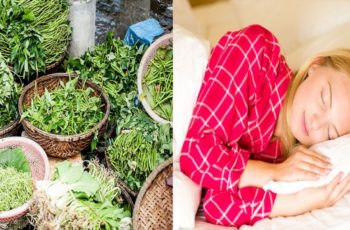Ad Blocker Detected
Our website is made possible by displaying online advertisements to our visitors. Please consider supporting us by disabling your ad blocker.
Magnesium and potassium and their impact on health
Research by the National Academy of Sciences of the United States has shown that “Magnesium” naturally “stops the infusion of calcium. If calcium is missing, the level of calcium in the cells increases.
Since calcium plays an important role in bone and muscle contractions, the lack of magnesium can result in muscle cramps, stretching and narrowing of the heart and brain arteries.
The lack of magnesium occurs in many diseases of the circulatory system as well as the nervous system. In poor absorption, diabetes, renal syndrome, and alcoholism. ” Symptoms of low magnesium include an irregular heartbeat, anxiety, mucus, unexplained fatigue, and cramping muscles. It has been scientifically proven that problems such as osteoporosis and asthma can occur, due to a lack of potassium.
Bananas: an example of the proverb “You Are What You Eat”
Bananas have nutritional value. When eating this fruit, it is important to keep an eye on the level of sugar because bananas are full of natural fructose sugar. But the amount of potassium is more than good. These are some of the reasons why the banana is a good meal:
- Bananas help regulate sugar levels
- Immature bananas are good for people with low tolerance to insulin because they contain 15 to 30 grams of digestive resistant starch
- Because of the high levels of potassium, bananas can help reduce the risk of kidney stones
Avocado: an impressive nutritional profile
Avocado is a fruit with incredible nutritional properties that contribute to the health of the whole body, especially arteries and hearts. Some of them are vitamin C, vitamin K, folate, and fiber. The daily values are expressed in percentages:
- fibers: 54%
- folate: 41%
- Vitamin C: 33%
- Vitamin B6: 26%
- magnesium: 15%
- potassium: 28%
- pantothenic acid: 28%
[mashshare]

